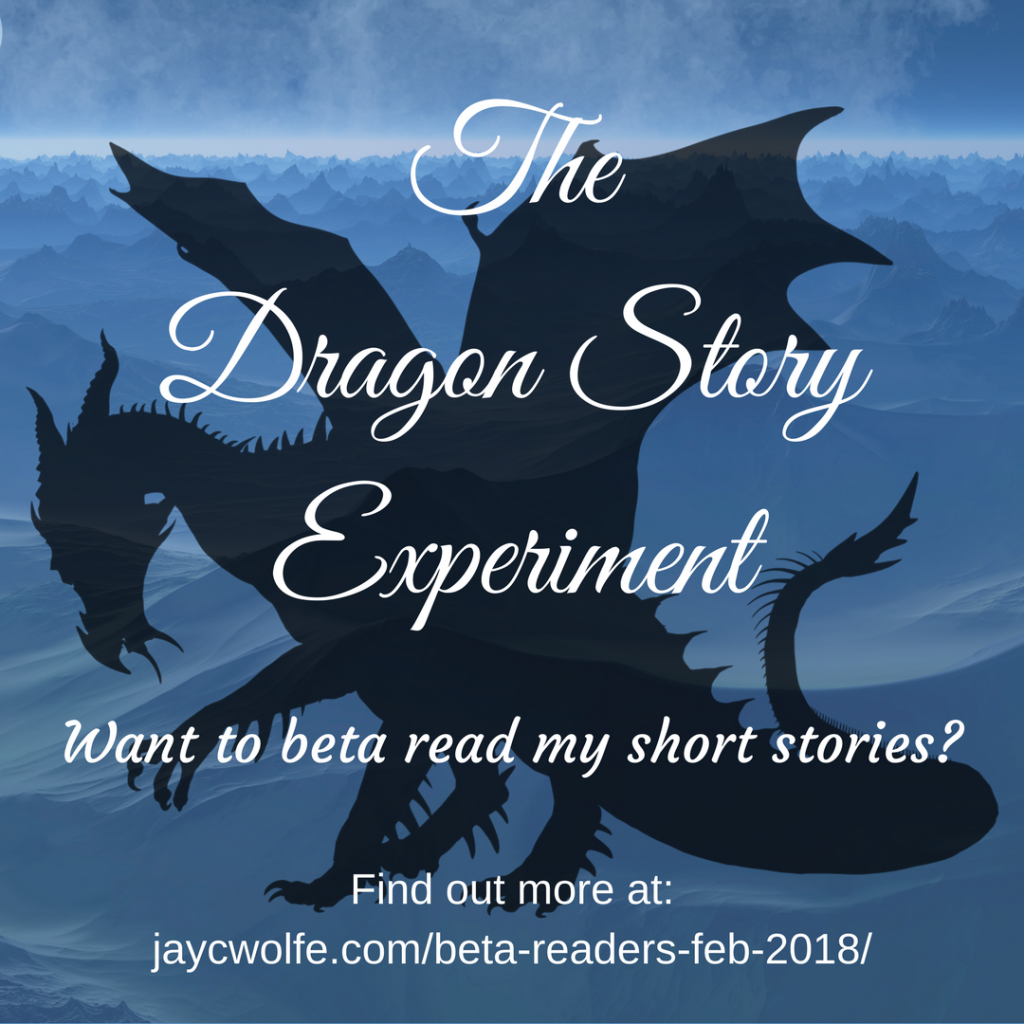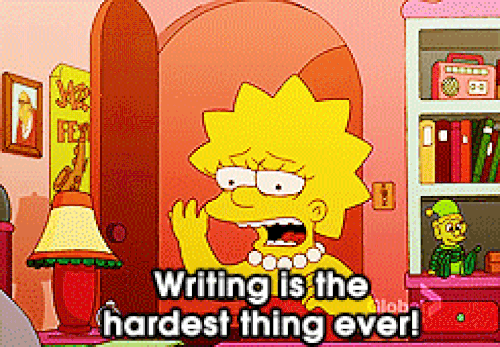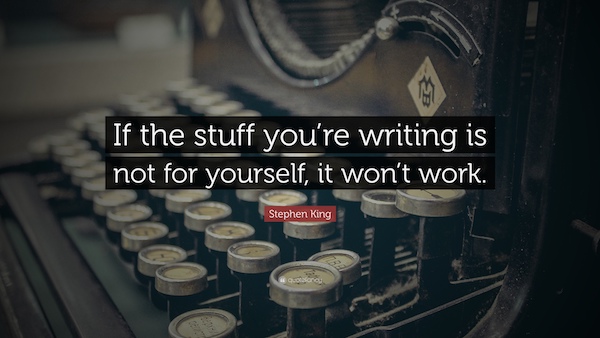by Naomi L. | April 4, 2018 | Blog, Creative Writing |
Dear beloved readers,
Hi! First off, I want to thank you for taking the time to read this post. What I’m about to say is kind of a big deal for me, but that doesn’t mean it has to be a big deal for you, so the fact that you’re setting aside this time means a lot to me. Thanks!
So this week marks a special occasion for me because it’s the fifth anniversary of when I started blogging! Yay! On that positive note, there are two announcements I’d like to make…

Blog Relaunch Coming Soon!
First, this post is an announcement that some major changes are coming to my website and online presence… eventually! Hooray!
Those of you who follow my blog know that I post every Monday, Wednesday, and Friday, as I have been for the past five years.
Well, the changes I’m planning to make will involve a lot of work on the backend, which means I’ll have to take a break from blogging for a while. When I return, expect a major blog update, complete with my new author name!
Now don’t get too excited: these big changes won’t be coming for several weeks at least. In fact, the earliest time to reasonably expect an official relaunch is June, but it could just as easily be a whole year away. In the meantime, I still plan to share updates on my current WIP featuring my dragon short stories.
So why am I telling you all this now?
Limited Time: Guest Posts Wanted!
I will be the first to admit that I haven’t exactly been the most selfless blogger on WordPress. My bad. That’s one of the many things I’d like to change following this update.
This brings me to the real point of this post. After all is said and done, I’ll need some help broadcasting my blog relaunch. What’s the fun of moving house if no one shows up to your housewarming party, right?
Simple links and shares on your blogs and social media pages will be much appreciated, of course. But while that would be very generous of you, I understand that most writers prefer a quid-pro-quo setup. That’s why for the first time ever, I’ll be temporarily opening my blog to guest posts!
Awesome! Where do I sign up?
If you think this is something you’d be interested in, be sure to take a look at my guest post guidelines for this relaunch before signing up below.
If you’re interested in hearing about my blog relaunch and/or want to submit a guest post in the future to help me promote the update, go ahead and sign up for my mailing list! (You should receive a welcome email after you sign up.)
Join My Blog Relaunch Street Team!
It’s important that you subscribe here because aside from still being several weeks away, the relaunch will involve a domain name and hosting change, and if anything goes wrong during the migration (*knock on wood*), email will be the best way for me to keep you in the loop.
Disclaimer: This is a temporary mailing list that will only be used to contact you about promotional help and guest post opportunities related to my blog relaunch. After the update, you’ll be given the option to stay on my main list or unsubscribe. If you choose to stay, you’ll continue to receive emails from me about my published books and other updates on my work. I will never send you spam. You can unsubscribe at any time (no hard feelings, promise).
If you choose to sign up, thank you so much for your help! It seriously means the world to me!
Even if you don’t join my list, you can still help me get the word out about my upcoming relaunch and call for guest posts today! Please feel free to share this post on your blog and social media channels! Many thanks!
If you’ve made it to the end of this post, thank you for your time and attention!
And to all of you who have been reading my blog for years, thank you so much for letting me share my writing with you! I hope to connect with you again soon!
Until then, bless you all!
Love,
JC Wolfe
by Naomi L. | April 2, 2018 | Blog, Word of the Week |
Word: denouement
Pronunciation: day-noo-MAH
Part of Speech: noun
Definition: the final part of a play, movie, or narrative in which the strands of the plot are drawn together and matters are explained or resolved
Source: Oxford Dictionaries
Today’s vocabulary post is a special one because it’s my last Word of the Week! This segment has been really fun to write and I’ll certainly miss it, but with all the major updates I’m planning for my blog, I won’t have room for it anymore. So with that in mind, I picked out one final word from the 100 most beautiful words in English that would be most fitting for my last vocabulary entry. Here’s to the “denouement” of my Word of the Week!
A “denouement” is the final part of a story in which the plot is tied together and the conflict is resolved. The word arose in the mid 18th century and is originally a French noun meaning “outcome”. This noun derives from the verb dénouer, meaning “to unravel”.
“Denouement” is a word that every fiction writer should know, as it’s an important part of any plot. After all the action has risen and fallen and the climax has reached its end, the “denouement” is the final part of the story when everything comes together: every remaining strand of the conflict is resolved and the story reaches its conclusion. Note that aside from its literary definition, “denouement” can also work in real-world contexts meaning “the climax of a chain of events, usually when something is decided or made clear”. Whether you use it to define the conclusions in your stories or simply keep it in mind when outlining your plots, “denouement” is a key word to have in your vocabulary!
Thanks for reading my Word of the Week segment! I hope you’ve enjoyed it!
by Naomi L. | March 28, 2018 | Blog, Creative Writing |
It’s been another month since my last update on my dragon stories! Last time, I shared some of the feedback I’d received from beta readers on my first two stories while the last one had yet to be edited and sent out. After sending out all three stories and receiving more feedback from readers, here’s another quick update on my project and where I plan to go from here!

Beta Reader Feedback
So far, all three of my stories have been very well received! Of course, that doesn’t mean they’re perfect, and my beta readers certainly had some great notes to share over the past several weeks!
Based on their feedback, it seems a couple of my biggest weaknesses in writing are passive voice and awkward sentences. This isn’t really a surprise; I’ve caught myself favoring passive voice over active voice more times than I’d care to admit, and even I find some of my own sentences awkward after a few rounds of editing. Despite everything I’ve learned about writing, I still have a handful of bad habits to break!
One thing that did surprise me was someone’s comment that the action in “Defender” was written very well. Action scenes have long been one of the areas I’ve felt least confident in, so hearing that my extra effort paid off definitely put a spring in my step that day! I was also surprised to hear that “Beastly Pains” is very reminiscent of the fable of “The Lion and the Mouse” (not that this is a bad thing, I just hadn’t realized it), and that “The Silver Queen” made one of my readers cry!
Overall, although there have been a couple of comments here and there that were hard to hear, I’m extremely grateful to the readers who have taken the time to read my stories and give feedback. Every comment, both positive and negative, helps me become a better writer!
Final Edits + Publication
Although my stories are technically still open for feedback from beta readers, I’m already getting started on the final drafts. Once those are done, I plan to assemble them into a single ebook and publish it on Kindle!
Now before you say anything, I know this sounds a little crazy. What am I thinking publishing these stories without giving them to an editor first?
Well, as I’ve hinted at before, this isn’t so much a true self-publishing venture as it is an experiment. I’m planning to use these stories to test certain aspects of self-publishing and see how readers respond to my writing so I can learn from the experience. I promise I have no intention of publishing my future “real” books without handing them over to a professional editor first! That would be insane!
The main reason I’m okay with putting this book out there in such a raw state is that I’m going to be rebranding myself as an author soon. This will be the only book I publish under my current name; after my upcoming blog relaunch, I’ll be focusing on a fresh series of stories to properly self-publish under my new author name, hopefully with a little more wisdom about the process!
What blog relaunch and new author name, you ask? You’ll have to wait until next week to learn more. 😉
Thanks again to all my beta readers for your feedback! If you’re not one of my beta readers yet but would like to be, you still have time to sign up for my mailing list! Once my final drafts are nearly ready, I’ll be closing my list, so be sure to sign up soon!
by Naomi L. | March 26, 2018 | Blog, Word of the Week |
Word: effloresce
Pronunciation: e-flə-RES
Part of Speech: verb
Definition:
- lose moisture and turn to a fine powder upon exposure to air
- reach an optimum stage of development; blossom
Source: Oxford Dictionaries
Here’s another word I learned from the 100 most beautiful words in English. Spring is finally here, so what better time to learn a word related to flowers and blossoming? If you’re inspired to write floral poetry this season, you may find it fun to describe the way the flowers “effloresce”!
To “effloresce” is to blossom or reach an optimum stage of development. To “effloresce” is also to lose moisture and turn to a fine powder upon exposure to air. The word arose in the late 18th century and comes from the Latin verb efflorescere, meaning “to bloom”. This verb comprises the preposition e- “out” and the verb florescere “begin to bloom”, the latter of which derives from the noun floris “flower”.
While the more obvious definition of “effloresce” is “to blossom” due to its relation to the word “flower”, it also functions as a chemistry term referring to salts that crystallize on a surface or to a surface that becomes covered with salt particles. The noun form “efflorescence” is also a chemistry term for the migration of salts through a porous surface (though I much prefer its other meaning: “blossoming”). Be careful not to confuse the verb “effloresce” with “effervesce” (“to give off bubbles” or “to be vivacious and enthusiastic”) or the adjective “efflorescent” with “evanescent” (“soon passing out of sight, memory, or existence”)! If you love writing about flowers or other things that bloom, “effloresce” may be a great word to include in your vocabulary!
What are your thoughts on this word? Any suggestions for future “Word of the Week” featured words?
by Naomi L. | March 21, 2018 | Blog, Creative Writing, Featured |
Writing is incredibly rewarding, but it can also be extremely challenging. Every artist is unique and every writer has their reasons for wanting to write, yet there are some pieces of advice that hold true for all creative spirits. Whenever you find yourself at a low point, reminding yourself of this advice may be the motivation you need to get back to writing!
So for those of you who so nobly chose to be writers, here are three pieces of advice you should never forget. Enjoy, and stay motivated!
1) Writing isn’t always easy, but you should do it anyway.
I hate writing. I love having written. – Dorothy Parker / every writer ever
I’ve said it before and I’ll say it again: writing is the hardest thing ever! Not always, but enough of the time to disillusion the most resilient of idealists.
Writing has its ups and downs. Sometimes inspiration strikes and you stay up until 3 a.m. finishing your latest chapter. Other times you get stuck or work for days straight only to have to throw all those pages out by the final draft. It’s enough to drive anyone crazy!

And yet you keep writing anyway. Why? Because deep down you know that even at its worst, writing is worth doing. It’s liberating. It exercises your imagination. It’s one of the greatest ways to express yourself. And you just love it. As much as you hate it sometimes, you love it. And if you can turn that passion into something beautiful? Well, congratulations: you’re a true writer!
Why do you write? Only you can answer that question for yourself. But whatever the reason you became a writer, it matters. So make it count.
2) The first audience you should ever try to please is yourself.
Better to write for yourself and have no public, than to write for the public and have no self. – Cyril Connolly
This may seem obvious, but at some point in the writing process, many writers fall into the trap of people-pleasing. Will my friends and family like this? Will my editor like this? Will my target audience like this? What if nobody likes it? Maybe I should change it.
Yes, writing with an audience in mind is important: we want readers to love our work so we can sell more books and be successful. The trick is finding the overlap between what people want to read and what you want to write.

Maybe you want to capitalize on the latest trends in fiction or adjust your style to appeal to a wider audience. But if you try to write an edgy dystopian sci-fi novel when you only like writing Christian historical romance, the quality of your work will suffer. Readers can tell when your heart isn’t in it.
Whenever you sit down to write something new, make sure it’s a story you want to tell. Otherwise you’ll end up with a book that you didn’t want to write and that no one wants to read—nobody wins. Write for yourself first, worry about everyone else later.
3) It doesn’t matter if it’s been done before; if it’s never been done by you, go for it!
There is no one alive who is Youer than You. – Dr. Seuss, Happy Birthday to You!
Human beings are funny creatures. We encourage individuality and freedom of expression, yet we do everything in our power to fit in with everyone else just so we can be accepted by our peers.
As much as art thrives on individuality, writers suffer from this conflict too. We want to stand out, but we can’t be too different or no one will read our books. As a result, many of us find ourselves caught in the dilemma of wanting to tell a story but worrying that “it’s been done before.”

But here’s the truth: it’s not so much about the story you tell as it is about how you tell it.
Think about it: if Shakespeare already wrote the quintessential story of forbidden love with Romeo & Juliet, then how did West Side Story win so many awards? If anyone can just read a history book or a Wikipedia article, then why is it virtually impossible to get tickets to see Hamilton? Why do people continue to write novels and make movies when every work of fiction can be boiled down to one of seven basic plots?
Simple: the story may be the same at its core, but the way it’s told makes it different and interesting. In other words, it’s your voice that will make your story unique.

The fact is that every story told since the Age of Antiquity has already been done. What matters is that it’s never been done by you. No one else has your voice, so don’t be afraid to let the world hear it.
What advice about writing do you find most helpful? What other pieces of advice would you add to this list?
by Naomi L. | March 19, 2018 | Blog, Word of the Week |
Word: calumniate
Pronunciation: kə-LƏM-nee-ayt
Part of Speech: verb
Definition: make false and defamatory statements about
Source: Oxford Dictionaries
Here’s yet another word I learned from the Association game in the Elevate – Brain Training app. Like many of the words in the game, this one was a formal synonym for one of the common words in the given set—in this case, the word “insult”. It certainly works as a literary term; in stories where slander is rampant, expect certain characters to “calumniate” their enemies!
To “calumniate” someone is to make defamatory and false statements about them. The word arose in the mid 16th century and comes from the Latin verb calumniari, meaning “to accuse falsely”. This verb stems from the noun calumnia, which means “false accusation”.
The verb “calumniate” is related to the noun “calumny”, meaning “the making of false and defamatory statements in order to damage someone’s reputation”. If you have trouble remembering what these words mean, try associating them with the word “callous”, which means “showing or having an insensitive and cruel disregard for others”. If your characters make a habit of insulting others, “calumniate” may be a good word to include in your stories!
What are your thoughts on this word? Any suggestions for future “Word of the Week” featured words?








Recent Comments